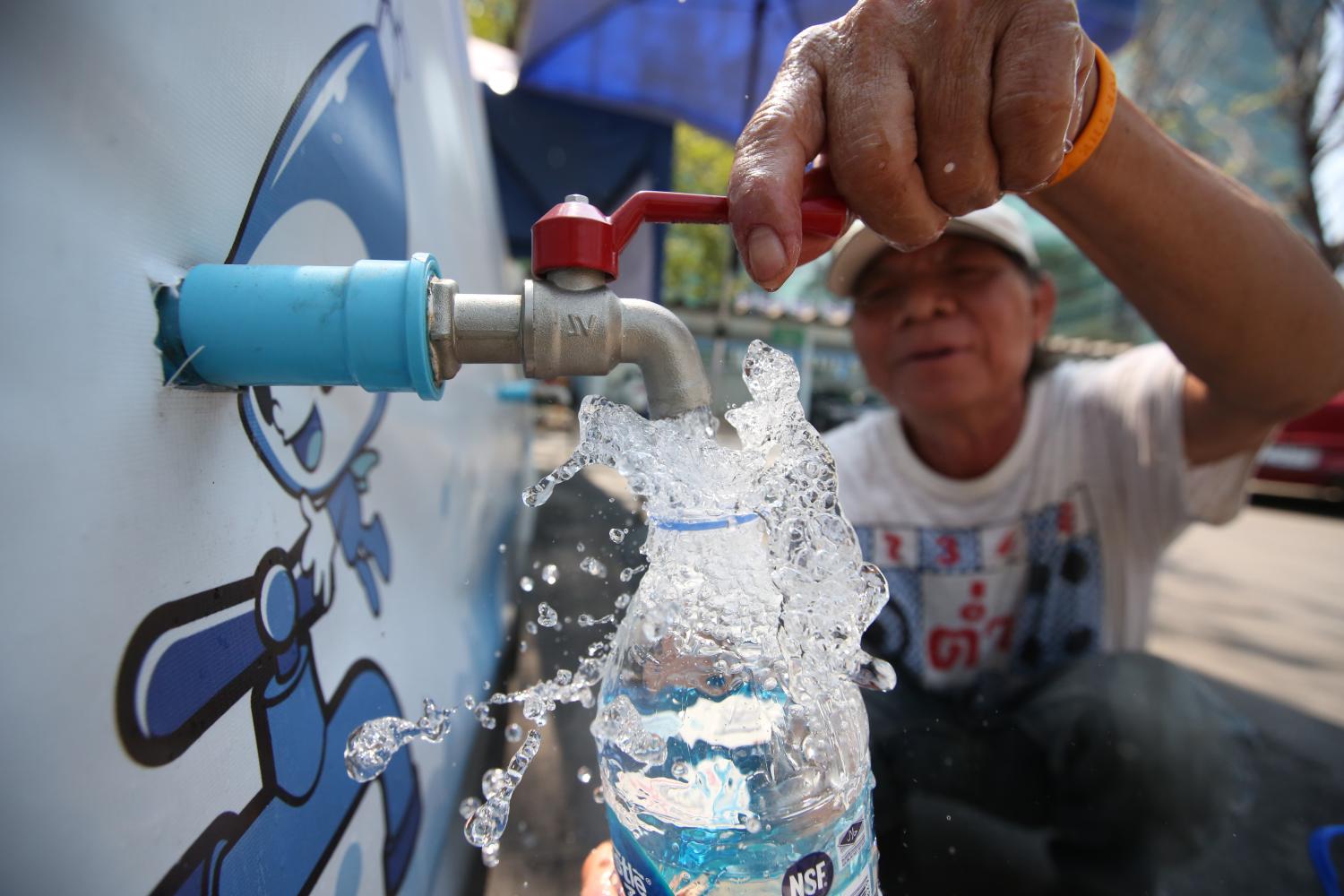
Thailand is urgently tackling a saltwater intrusion problem after the amount of sodium in tap water exceeded the standard level.
The president of a subcommittee in charge of managing the Chao Phraya, Ping, Wang, Yom and Nan water basins, Weerakorn Khamprakob, said sodium in tap water was on Jan 30 measured at 2.2 grammes/litre which was deemed too much for consumption.
The water is deemed brackish if the proportion of salt is higher than 0.5 grammes/litre. The water is deemed saline water if salt in it exceeded 1 gramme/litre, Mr Weerakorn said.
Normally, freshwater of 3.5 billion cubic metres is used each year to dilute saline water. However, the country could not afford to use such a large amount of freshwater due to the drought this year, he said.
He suggested the government make barrages or foldable water-retaining walls to prevent seawater intrusion.
Mr Weerakorn called on the Royal Irrigation Department and the government to tackle the problem of salty tap water urgently or people will run the risk of kidney problems.
Komkrit Dinakara Na Ayudhya, Metropolitan Waterworks Authority (MWA) deputy governor and spokesman, said the pipe water in Bangkok, Nonthaburi and Samut Prakan at some points has more than 0.2 grammes/litre which is still at a safe level.
However, those with heart disease, kidney disease, hypertension, or diabetes should avoid drinking the water, as should the elderly, small children and small pets.
The MWA updates the salinity level of the water throughout the day, sends water trucks to provide drinking tap water to the public, and can be reached via MWA app on mobile, Twitter and Line accounts @MWAThailand and hotline number 1125, he said.
Acting director-general of the Royal Irrigation Department Sanya Saengpumpong on Wednesday said the saltiness of the Chao Phraya River was higher than normal, affecting the production of tap water by the MWA.
The amount of dissolved salt in the water was at 0.25 grammes/litre at the Samlae Raw Water Pumping Station in Pathum Thani on Feb 2.
The department had adjusted its water discharge plan for the Chao Phraya dam in Chai Nat, and Rama VI dam in Ayutthaya to mitigate the salinity of water in the lower Chao Phraya water basin. The dams would discharge water in line with the tides, Mr Sanya said.
Water in the four main reservoirs was low and needed to be reserved for consumption and maintain the ecological system. There was not enough water to dilute the salinity for home use, he added.
Khlong Lat Pho floodgate in Samut Prakan will be opened and closed strictly in accordance with the tides. Bangkok's Department of Drainage and Sewerage would discharge water into the Chao Phraya River during low tides, he said. If the situation worsened, part of the water from the Mae Klong River would be diverted to help reduce the salt, he said.